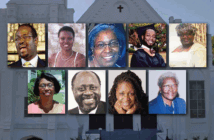Communication specialist Theodore May explains that the tendency to lead from the heart often impedes rational decision making in churches. But it can be an advantage when it comes to implementing key decisions. Churches, he says, can be particularly effective in creating compelling narratives to generate support for their decisions.
In the secular world, leaders are trained to use their heads. Businesses invest heavily in data collection, analytics and economic modeling. Local churches, however, often gravitate toward making decisions with the heart. They typically have less information and fewer analytical resources, and they tend to be more accepting of prayerful, heartfelt, and deliberative processes. Some church members are even wary of “thinking like a business” because they think of businesses as self-serving, heartless, and even faithless.
The importance of rational decision making
But not all data is dollars. Not all information is profit-seeking. Grounding decisions in data, logic, and rational decision making is critical in any organization of any size because we are responsible for prioritizing outcomes. Even if we decide to choose a direction that challenges the available data and logic, it’s good to understand the risks we undertake and the possible consequences we must be prepared to accept. Better data inputs lead to more informed decisions and a more effective prioritization of outcomes.
It’s one thing to reach a decision, it’s an even bigger thing to see that decision successfully implemented. While data and information are critical to good decision making, decisions do not implement themselves. And implementing major decisions in any organization requires emotion. Our hearts must be in it.
The importance of narrative in implementing decisions
We can’t assume that a rational decision will immediately be recognized and embraced by all or that everyone will immediately or instinctively know what they need to do to support the implementation of the decision. Broad emotional support for a key decision requires a common narrative with roles for all to play in that narrative. If church members are invited to play a role, if they understand the role they are being called to play, and if they see how they can succeed in that role, then they are more eager to participate and likely to succeed.
How to construct a compelling narrative
A compelling narrative determines the direction and intensity of response from an audience, establishes clear roles and relationships for members of the audience, and makes meaningful responses possible. A classic narrative structure can communicate a decision and why it was made. The most familiar dramatic narrative structure identifies:
- The players. Active agents who can effect change, those who are affected, and those from whom a response is required.
- The evidence. Data and information needed to support the decision.
- The impending. What happens or what opportunity is missed if no action is taken.
- The proposed solution. What is the proposed course of action.
- An action plan. Defined in terms of individual responsibilities and relationships rather than simply tasks.
It’s this familiar narrative arc that awakens and arouses the emotions and empathy of the audience. The more significant and potentially disruptive the decision, the more you need an effective narrative to engage the emotions of your listening audience.
Defining and playing a role in the realization of a shared narrative is infinitely more energizing and enriching than participating in ill-informed deliberation. At the end of the day, it’s all about implementation. Local church bodies can be quite good at this because there is a ready appreciation in churches of the importance of having a common narrative and a higher comfort level with emotional appeals.
When it comes to the inspired implementation of decisions, the tendency of church culture to be inclined toward the heart can be an advantage.
Copyright 2018. Theodore May. Used by permission.
Related Resources
- The Power of Stories by Jill Fox
- How to Communicate Change by Karen Shay-Kubiak
- Reclaiming the Lost Art of Story Telling by Chris Ruddell






